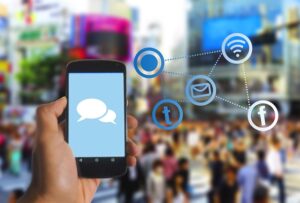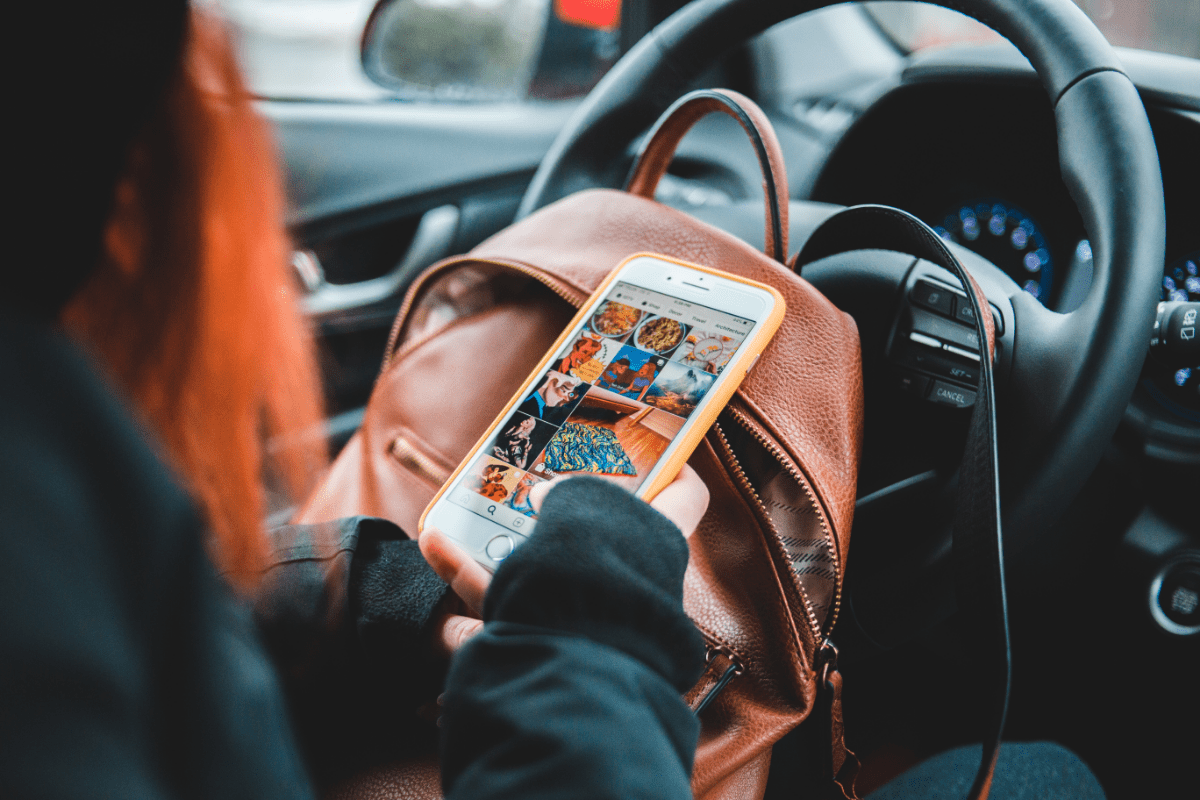By: Design for Change Recovery
Categories:
Drug Dealers Have Shifted From Street Corners to Social Media
You are here:Social media provides anonymity, convenience, and a large customer base. These are qualities that a drug dealer can appreciate, and they take advantage of the platforms daily. As a result, the prevalence of drug dealers online is on the rise across many social media platforms.
Dealers who sell drugs online play a significant role in causing over 60,000 drug overdose deaths each year.
Whether a buyer is looking for illicit drugs like heroin, fentanyl, and cocaine or controlled substances such as opioids and other painkillers, they can find them online. All they have to know is a secret code or message.
How to Watch for Drug Dealers Online
Drug dealers on dating apps have their own secret codes, emojis, symbols, or language. They use random capital letters and acronyms in their profile, and some are explicit about what they have to offer.
Among the many emojis used are ice cream cones and birthday cakes. Code words such as “Tina” are used to obtain meth. The term “420 friendly” means the person is a user of cannabis or is tolerant of cannabis use.
Drug dealers use the app’s algorithms to target vulnerable people such as people in recovery and teenagers. The algorithms connect sellers and buyers so fast that moderators can’t delete them.
Surprising Statistics
 Dealers even set up fake pharmacies to lure in older people to purchase fake painkillers and other dangerous pharmaceuticals. Out of 35,000 online pharmacy websites, only 5% comply with pharmacy standards and laws. These illicit “pharmacies” that sell drugs online are causing significant increases in fatal overdoses.
Dealers even set up fake pharmacies to lure in older people to purchase fake painkillers and other dangerous pharmaceuticals. Out of 35,000 online pharmacy websites, only 5% comply with pharmacy standards and laws. These illicit “pharmacies” that sell drugs online are causing significant increases in fatal overdoses.
Among teens who reported seeing drugs for sale on social media, about 56% saw drugs advertised on Snapchat, 55% saw them on Instagram, and 47% saw them on Facebook.
Business is Booming for Drug Dealers Online
The sale of illegal drugs by drug dealers online is a booming business for dealers and they continue to find new ways to avoid being caught. They have moved from the street corners to the internet and with a few clicks, buyers can arrange door-to-door delivery of illegal substances.
Here are a few examples of the extent of drug peddling on social media:
Facebook and Instagram
Facebook’s Transparency Report from 2021 claimed they “actioned” over 16.7 million illegal drug posts on Facebook and Instagram. What this means is that the posts were flagged but not necessarily removed.
While most people believe most drug trafficking happens on the Dark Web, in truth, the number of drug sales on Facebook is much higher, according to the Justice Department.
Tinder
Drug dealers love to use this dating app to peddle their drugs. They set up profiles using photos of the drugs or fake photos to lure people in. The profile contains information about the kind of drugs available. Someone looking for drugs can search using “drugs” or “420” to find a dealer who can meet with them locally or have them delivered.
Grindr
According to the National Association of LGBT Addiction Professionals,
“With Grindr, men can have sex and drugs delivered to their door instantly.”
In a statement to CNN, Bill Shafton, Vice President of Business and Legal Affairs for Grindr, said:
“The sale of drugs or any illegal activity on Grindr is strictly prohibited as a violation of our Community Guidelines and Terms of Service. Our moderation team works hard every day to ban bad actors while maintaining the privacy and security of our users.”
Although the dating app has taken steps to address the problem, it remains an ongoing issue as a market for illicit substances.
Current Laws That Prohibit Drug Dealers Online
In the U.S. the sale and purchase of controlled substances on the internet are prohibited under the Ryan Haight Online Pharmacy Consumer Protection Act of 2008, which is enforced by the DEA.
The 1996 Communications Decency Act (CDA230) provides immunity to providers of “interactive computer service” for user-generated content. Some tech giants like Google and Facebook have used this act to claim immunity for hosting illegal drug content.
The Alliance to Counter Crime Online (ACCO) is pushing for Congress to reform CDA230 to make the internet a safer place for innocent people instead of a safe haven for criminals.
In Polk County, Florida, officials use dating apps to help them find drug dealers. In their “Swipe Left for Meth” campaign, detectives created undercover profiles to strike up conversations with dealers and arrange to buy drugs.
During the “Swipe Left for Meth” investigation, undercover narcotics detectives purchased the following:
- 280 grams of meth
- 3 grams of cocaine
- 645 grams of marijuana
- 113 grams of Ecstasy
- 1.5 grams of fentanyl/heroin
- 28 grams of psychedelic mushrooms
Throughout this investigation, detectives filed 159 felony and 72 misdemeanor charges. Many of the suspects had previous charges.
The Polk County sheriff’s office will continue to monitor social media and dating apps and they encourage the public to call in any tips about suspected drug activity online. Furthermore, police departments across the country plan to investigate cases of drug promotion and selling on social media and dating apps.
Freedom From Addiction Begins at Design for Change Recovery
At Design for Change Recovery, we want to help undo the damage caused by drug dealers online. We achieve that goal by providing evidence-based, affordable treatment for those who struggle with substance misuse or inappropriate use.
If you need help overcoming drug or alcohol use, contact us at our Lancaster, CA facility today. Our phones are staffed by compassionate, knowledgeable professionals who are ready to help you take the first steps toward freedom from addiction.
Sources:
- getsmartaboutdrugs.gov/ – Dealers May Be Using Dating App Tinder to Peddle Drugs
- nbcnews.com/feature/ – Sex and drugs: Popular gay dating app allows users to find more than a date
- transparency.fb.com/ – Community Standards Enforcement Report


